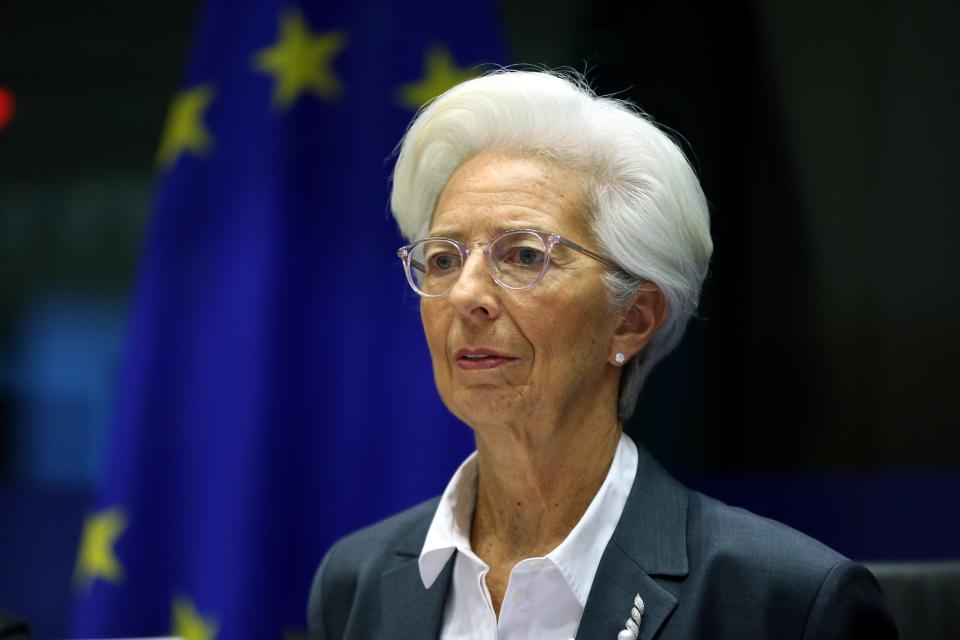ECB holds interest rates steady after first meeting under Christine Lagarde

The European Central Bank (ECB) on Thursday chose to hold interest rates steady, leaving its monetary policy unchanged following Christine Lagarde’s first meeting as president.
As expected, the bank reiterated its guidance that interest rates would “remain at their present or lower levels” until inflation in the euro zone moves closer to its “close to, but below” 2% target.
Analysts expect Lagarde, who took office six weeks ago, to later announce details of the first major strategic review of the ECB’s operations since 2003.
The bank may consider adjusting its inflation target, changes to the governing council’s voting procedure, and whether climate change should be something that factors into its decisions.
But outgoing executive board member Benoit Coeure has insisted that central banks cannot be “at the forefront in fighting climate change”, though he acknowledged that there were some things that they could do.
A move to put climate change at the heart of the ECB’s mission could signal a shift away from the bank’s focus on controlling inflation. Some have argued that the bank should give more favourable terms to banks exposed to environmentally sustainable projects.
This would also be significant, since the ECB has up to now largely made assessments based on financial risk.
Thursday’s decision to hold rates steady, which was widely expected, comes after the bank in September unveiled a sweeping stimulus package designed to lift the eurozone’s flagging economy.
That month, the governing council voted to cut one of its key interest rates for the first time since early 2016, pushing it into record negative territory.
The bank also revived its controversial quantitative easing programme, a move that divided the council and provoked an unprecedented chorus of reproach from several of its members.
Central bankers from the Netherlands, Germany, and Austria publicly questioned the rationale for the moves, while a German member of the bank’s executive board, Sabine Lautenschläger, resigned in apparent protest of the plan.
But economic data and price growth in the eurozone have lagged in recent months, prompting the ECB to step up its attempts to convince national governments to stimulate their economies with things like infrastructure spending.
Inflation has averaged just 1.2% thus far in 2019, quite a bit below the bank’s target.

 Yahoo Finance
Yahoo Finance 
